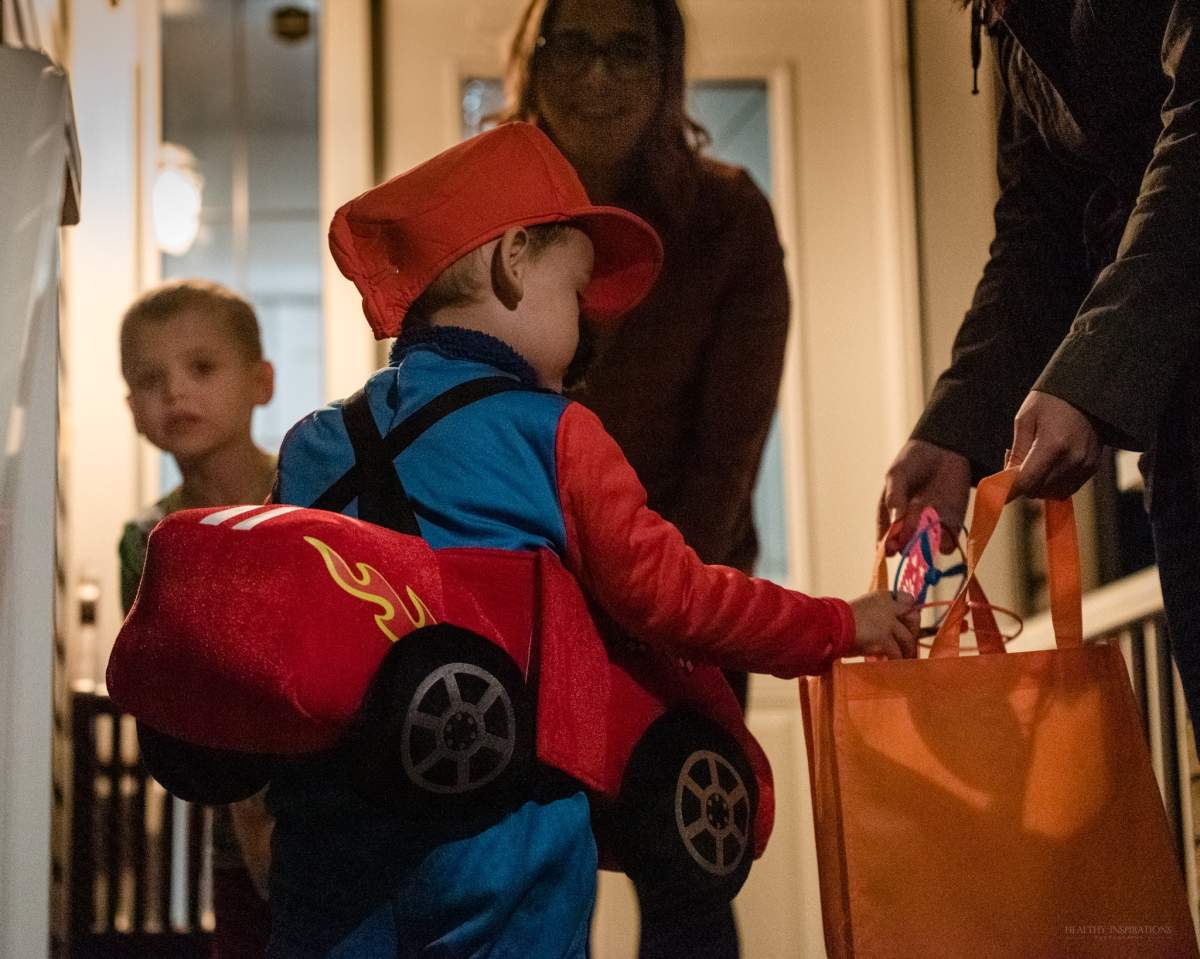An Edmonton-area woman is working to make sure that every child gets to trick-or-treat on Halloween, regardless of how they may react to a more traditional spooky setting.

Last year, Kayleigh Lynds created Sensory Halloween, an event that sees specific houses in Spruce Grove open their doors a day early to ghouls and goblins who may have sensory issues, food sensitivities or allergies or may be diabetic.
“All these kids create a very large population,” Lynds said. “It’s actually larger than the population that can trick-or-treat on the 31st.
“I just wanted to start an event that really gave these kids the experience of childhood that they so desperately deserve and needed.”
On Wednesday, kids gathered at a meeting spot in Spruce Grove, before heading out with a map showing them what houses would be participating in the special event.
Only non-edible treats like stickers and small toys are given out at the event, so any kids with food allergies or sensitivities can easily take part without being afraid of getting sick or having an allergic reaction.

Get daily National news
“On a night where we’re supposed to be letting our kids be kids and run free and meet their community, it’s sad that such a large population of children is left out of this event,” Lynds said.
Houses are also asked to not have any decorations that are too scary, anything that may jump out at people or anything with loud noises or flashing lights.
“One dad said last night that there is no other way to foster independence and confidence in his severely autistic child than this event, because there isn’t such an openness in the community for these kids and there isn’t a lot of room for them or a lot of empathy for what these kids face,” Lynds said.
Lynds shared another story of a little girl who is non-verbal and could feel comfortable going house to house because those inside weren’t opening the door and pushing her for a “Trick-or-treat,” or “Say please,” before giving her a goody.

Lynds added she hears a lot of complaints about how kids don’t trick-or-treat as much anymore. Things like technology tend to be blamed, but she thinks it’s because society is becoming more aware of how things like Halloween actually affects some kids and those who are overwhelmed by scary decorations or flashing lights, or could have serious health issues because of the treats that are being handed out.
“They’re blaming it on technology, they’re blaming it on the loss of tradition, but what they’re actually doing is excluding 80 per cent of the population of children that really want to participate in this event, but can’t because of the premise of it.”
Though the event is small, it’s growing every year, Lynds said. She’s hoping other communities will follow suit and create their own sensory Halloween events.
“Get in touch with me,” she said.
“I’ll help you. I’ll give you the building bricks to get it started and market it and we can all be a part of this together.”








Comments
Want to discuss? Please read our Commenting Policy first.